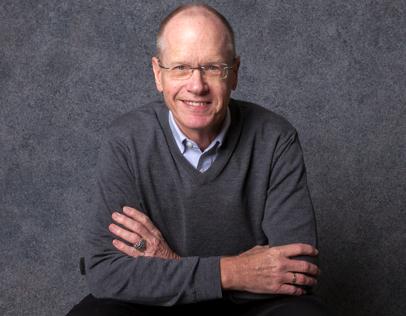Often enough, politically oriented intellectuals are the targets of a standard lefty criticism: you talk a good game, but have you been in the streets? Few would dare lodge such a question at University of Toronto’s David Rayside, who is retiring this month. A one-day symposium on March 1 will celebrate Rayside’s accomplished career, which his peers say is the perfect example of how activism and scholarship can not only coexist, but enhance each other.
Rayside got his start as a gay activist in the 1980s, working with such groups as The Body Politic, the Right to Privacy Committee, and the Citizens’ Independent Review of Police Activities.
“He was quite involved,” remembers Gary Kinsman, also a seasoned activist, and a professor of sociology at Laurentian University. “I have a lot of respect for his long-term commitment to activism.”
It was during this time that Rayside also began taking on issues of sexual diversity within his work as a professor of political science. In 1998, Rayside sat on the committee that eventually founded the department of Sexual Diversity Studies at U of T (SDS) and, later, the broader Mark S Bonham Centre for Sexual Diversity Studies. Although academic administration and organizing can be a daunting venture at the best of times, Rayside’s colleagues have always been impressed by his effective negotiation at the university.
“He’s been an incredible administrator,” says Scott Rayter, the acting director of the SDS Department. “He’s not necessarily the person standing in the front, doing all the speeches, but rather the one making it all actually happen.”
From fundraising to committee administration, Rayside is known as a versatile figure around the university. But he’s also been a long-time mentor to students, both in and out of the classroom.
Brock Hessel, a current undergraduate, remembers fondly his summer job working with Rayside. “He believed in me, and I wasn’t expecting that. I didn’t even know who he was and what exactly he had done for the program,” he reflects. “I wasn’t aware of all of his activism. Sometimes you don’t realize somebody’s full greatness until after the fact.”
However humble he may be in person, Rayside has been a fierce advocate for the queer movement throughout his prolific body of scholarship. Although he has researched several other topics, his commitment to sexual diversity issues is long-standing. From his early books, On the Fringe and Queer Inclusions, Continental Divisions, to his more recent work on schooling and religious response to sexual diversity, his peers say his persistent and thorough study has been crucial in making space for queer topics in comparative political science.
“The main contribution that David has made is the mainstreaming of LGBT politics into political science,” says Jordi Diez, a professor of political science at Guelph University who will be chairing a panel at the symposium. “[In the past], LGBT politics were not treated as serious politics.”
It is Rayside’s focus on the relationship between grassroots action and quantifiable political change that has made his work stand out.
“David is one of the pioneers who has looked at how gay and lesbian movements actually influence policy,” Diez says, noting that this kind of grounded scholarship can then be critically applied on the ground level of social movements.

 Why you can trust Xtra
Why you can trust Xtra


